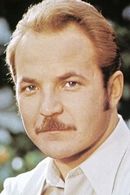Nikolay Gubenko is a multifaceted individual who has made a significant impact in the realms of Soviet and Russian theater and film, showcasing his talents as an actor, film director, and screenwriter.
As the founder and artistic director of the esteemed "Commonwealth of Taganka Actors" theater, Gubenko held this esteemed position from 1992 to 2020, leaving a lasting legacy in the world of theater.
Throughout his illustrious career, Gubenko has been recognized for his outstanding contributions to the world of arts, earning the prestigious title of People's Artist of the RSFSR in 1985.
Moreover, Gubenko held the esteemed position of the last Minister of Culture of the USSR from 1989 to 1991, demonstrating his commitment to the arts and his ability to lead and inspire.
In addition to his numerous accomplishments, Gubenko has also served as a Deputy of the State Duma of the Federal Assembly of the Russian Federation in the II and III convocations from 1995 to 2003, showcasing his dedication to public service.
Gubenko's film debut came in 1964 with a role in the film "Zastava Ilyicha", marking the beginning of his illustrious career in the world of cinema.
His first major acting success came after landing the leading role in the graduation performance "The Career of Arthur Wee" by Brecht, a testament to his remarkable talent and dedication to his craft.
In 1970, Gubenko graduated from the directing department of VGIK, a prestigious film school, and went on to direct six full-length feature films and one short film, solidifying his status as a master filmmaker.


















